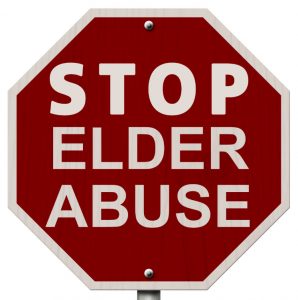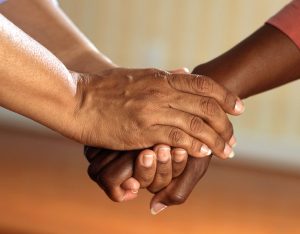Maturity Matters
Compliments of :
Edition 6 Volume 17
Mind: One Case is Still Too Many – World Elder Abuse Awareness Day – June 15
Body: Fall Prevention
Spirit: Take Time to Care
Body: Fall Prevention
Spirit: Take Time to Care
One Case is Still Too Many – World Elder Abuse Awareness Day – June 15

“On this Day, I call upon Member States and civil society to strengthen their resolve and redouble their efforts to eliminate all forms of violence and abuse against older people.”
UN Secretary-General Ban Ki-moon
• Mary’s son-in-law bullied her into giving him money to help pay off a personal loan, telling her that it would be part of their inheritance anyway, and they are only collecting it early.
• Sonia recently moved into a care facility. When she asks for help, some of the staff complain that she is too demanding, and are very rough with her and hurt her when helping her into and out of the bed and the bath.
• Harold’s daughter publically ridicules him about the times he forgets to zip up his pants or miss-matches his socks. She tells everyone how looking after him is worse than looking after her children.
• Jimmy threatens to no longer come to visit his grandmother if she fails to give him cash from her wallet or bank account.
• Gerry moved in with his niece. He spends most of his time alone in his small room, is not allowed a phone, and has all his mail screened by this niece.
The UN Economics and Social Council defines elder abuse as:
“A single or repeated act, or lack of appropriate action, occurring within any relationship where there is an expectation of trust, which causes harm or distress to an older person.”
As we can see from the limited examples at the beginning of this article, elder abuse can be physical, psychological, sexual, financial or spiritual, and can also result from failure to provide basic human rights that contribute to a sense of well-being, inclusion, health, and dignity. Self-neglect is also a form of abuse.
Abuse and neglect in any form is unacceptable, and unless interrupted, will likely escalate.
Financial abuse is the most reported form of abuse. Prevalence of any type of abuse is difficult to document due to reluctance to report, as well as the lack of standardization of definitions and data collection methods. Having said that, it is suggested that elder abuse affects between 4-10 % of our older adult population.
Abusers are most often known to the older person and typically include family, friends, formal and informal caregivers. Stranger and institutional abuse also pose a threat.
Some Signs of Abuse:
Unexplained bruises and injuries; soiled and/or bloodied clothes; unpaid bills; missing financial statements; missing personal possessions; changes in personal hygiene and living conditions; malnutrition; weight loss; isolation; changes in personality — especially becoming withdrawn or frightened; overmedication; broken or missing health aids such as glasses, hearing aids, dentures, etc.
Unexplained bruises and injuries; soiled and/or bloodied clothes; unpaid bills; missing financial statements; missing personal possessions; changes in personal hygiene and living conditions; malnutrition; weight loss; isolation; changes in personality — especially becoming withdrawn or frightened; overmedication; broken or missing health aids such as glasses, hearing aids, dentures, etc.
What to do about Elder Abuse and Neglect:
If the problem is urgent and the person is in immediate danger — CALL 9-1-1!
If the problem is urgent and the person is in immediate danger — CALL 9-1-1!
If the person is not in immediate danger, try to get them alone and discuss what you are noticing, and let them know it is not their fault and that you are there to help. Research community resources, and if you are not sure, call your local police and they will be able to identify emergency and non-emergency assistance.
Most of all, do not abandon them. Many older persons experiencing abuse will be hesitant to seek help for a variety of reasons such as fear of retaliation or being alone, and concern for the abuser. Let the person know that you will continue to monitor the situation and will be there when they are ready for support. Remember — if the situation deteriorates and they are in danger — Call 9-1-1!
Abuse and neglect of older persons is a difficult topic to discuss. With increased understanding and awareness, we as individuals and as a society can make a commitment to recognize, respond, and report — and one day we may no longer need a World Elder Abuse Awareness Day!
Rhonda Latreille, MBA, CPCA,
Founder & CEO
Age-Friendly Business®
Founder & CEO
Age-Friendly Business®
Fall Prevention
It has been suggested that effective fall prevention strategies could have the greatest impact on reducing costs to our health care system. To help prevent falls, engage in regular exercise to maintain a strong core and good balance, wear quality shoes with support, remove area rugs that cannot be secured, and place decorative plants out of pathways.
Foundation Course
Age-Friendly Business®
Age-Friendly Business®
Take Time to Care
“No one cares until someone cares; be that one!”
Ken Poirot
